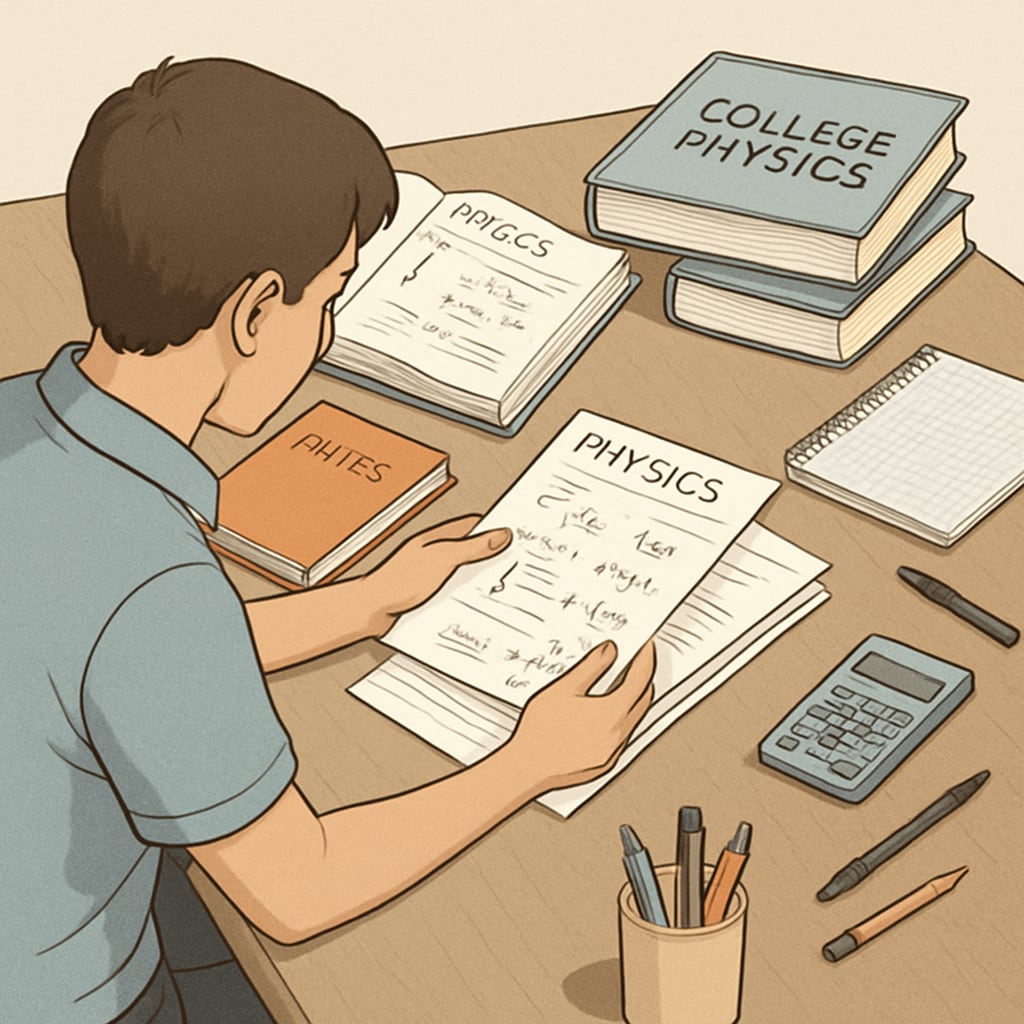Tackling BSc Physics backlogs, time management, and exam preparation can feel overwhelming, especially when juggling other responsibilities. However, with the right strategies, students can clear their backlogs efficiently while ensuring they are prepared for exams. This article provides actionable steps to help you regain control and excel in your academic journey.
Identify and Prioritize Your Backlogs
The first step to resolving backlogs is understanding the scope of the problem. Create a comprehensive list of all the topics or chapters you need to cover. Once the list is ready, prioritize them based on their importance in your curriculum and upcoming exams. For example, focus on foundational topics that serve as prerequisites for more advanced concepts.
- High-priority topics: Subjects frequently appearing in exams or key to understanding other areas.
- Medium-priority topics: Topics that are moderately important or less frequently tested.
- Low-priority topics: Areas that can be skimmed if time is limited.
Having a clear roadmap will reduce decision fatigue and help you focus on what matters most.

Adopt Efficient Time Management Techniques
Time management is crucial when dealing with backlogs while managing other responsibilities. The following techniques can help you make the most of your limited time:
- Time blocking: Allocate specific time slots for studying, ensuring you balance it with other commitments.
- The Pomodoro Technique: Study in focused intervals of 25 minutes, followed by a 5-minute break. This prevents burnout and improves focus.
- Set realistic goals: Avoid overloading your schedule. Small, consistent progress is more sustainable than trying to cover too much at once.
In addition, use tools like calendars and to-do list apps to stay organized. For example, Google’s Calendar or apps like Trello can help you visually map out your study plan.
Utilize Active Learning Methods
Active learning methods engage your brain more effectively than passive reading. These techniques can help you grasp complex physics concepts faster:
- Practice problem-solving: Physics is a subject best learned through application. Solve problems regularly to reinforce your understanding.
- Summarize notes: After studying, write concise summaries of what you’ve learned. This helps with retention.
- Teach others: Explaining concepts to a peer forces you to understand them more deeply.
Additionally, leverage online resources such as Physics on Wikipedia and video lectures for visual and auditory reinforcement of challenging topics.

Balance Responsibilities and Prevent Burnout
Balancing backlogs with other responsibilities requires a sustainable approach. Here’s how you can prevent burnout:
- Set boundaries: Allocate specific times for studying and stick to them. Avoid overextending yourself.
- Take care of your health: Ensure you get enough sleep, eat nutritious meals, and incorporate physical activity into your routine.
- Seek support: Don’t hesitate to ask for help from teachers, peers, or family when needed.
Remember, your well-being is just as important as your academic performance. Taking regular breaks to recharge can improve your productivity in the long run.
Review and Revise Regularly
Clearing backlogs is only part of the equation; consistent revision ensures that you retain what you’ve learned. Schedule weekly review sessions to revisit key topics. Use flashcards, quizzes, and concept maps to make revision more engaging.
For BSc Physics students, revision is particularly critical for subjects that require both theoretical understanding and problem-solving skills. As Albert Einstein once said, “Education is not the learning of facts, but the training of the mind to think.” Use revision sessions to train your mind to think critically about physics problems.
In conclusion, tackling BSc Physics backlogs, time management, and exam preparation requires a proactive and structured approach. By prioritizing topics, managing your time efficiently, adopting active learning techniques, and maintaining a healthy balance, you can overcome these challenges and achieve academic success.
Remember, persistence is key. Start small, stay consistent, and celebrate your progress along the way.


